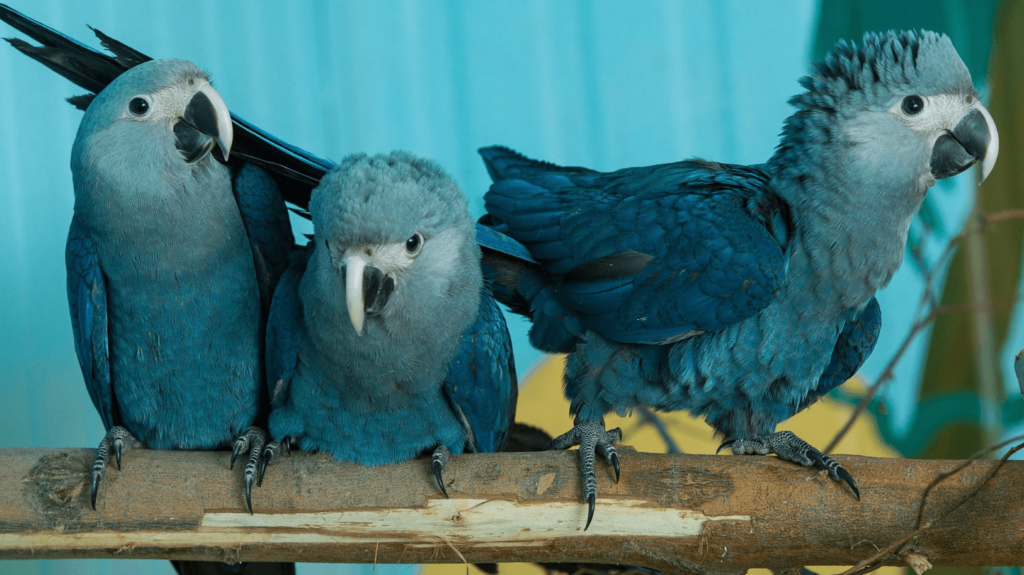In 2024, conservationists and bird lovers alike were saddened by the official declaration: the Spix’s Macaw, a beautiful blue Brazilian parrot, was extinct in the wild. This vibrant bird, often called the “Little Blue Macaw,” captured global attention with its striking beauty and fascinating personality. However, due to a tragic mix of human-driven and environmental factors, Spix’s Macaws now exist only in captivity, with an estimated 60 to 80 individuals remaining.

What Led to the Extinction of Spix’s Macaw in the Wild?
The Spix’s Macaw faced relentless threats over the past few decades. Three major factors led to the decline and eventual disappearance of this species in the wild:
Deforestation
As Brazil’s forests were cleared for agriculture and urban development, the Spix’s Macaw lost vast portions of its natural habitat. The dry forests of northeastern Brazil, where these macaws once thrived, were particularly impacted by deforestation. With fewer trees to nest in and less available food, the birds found it increasingly difficult to survive.
Invasive Species
Another challenge for the Spix’s Macaw was competition and predation from invasive species. Animals not native to the Brazilian ecosystem disrupted the natural balance, competing with macaws for resources and preying on eggs and chicks. These threats further reduced the survival rate of young Spix’s Macaws in the wild.
The Pet Trade
Sadly, the Spix’s Macaw also became a target of illegal pet trade. With their vibrant blue feathers and friendly nature, these birds were highly sought after, leading poachers to capture them for the exotic pet market. Over time, the population dwindled as more macaws were captured and removed from their natural environment.

A Future in Captivity: Can We Bring the Spix’s Macaw Back?
Despite the extinction of Spix’s Macaws in the wild, hope remains. Conservationists are working with the small population in captivity, aiming to protect and eventually reintroduce these macaws back into their natural habitat. Captive breeding programs could help increase their numbers, but re-establishing them in the wild will require significant effort to restore their natural habitat and protect them from threats.
Conclusion: A Wake-Up Call for Conservation
The extinction of the Spix’s Macaw in the wild is a powerful reminder of the impact human activities have on biodiversity. Through deforestation, introduction of invasive species, and poaching, we lost a precious part of our natural heritage. As we work to protect other species, the Spix’s Macaw stands as a symbol of resilience and the urgent need for conservation efforts worldwide.
